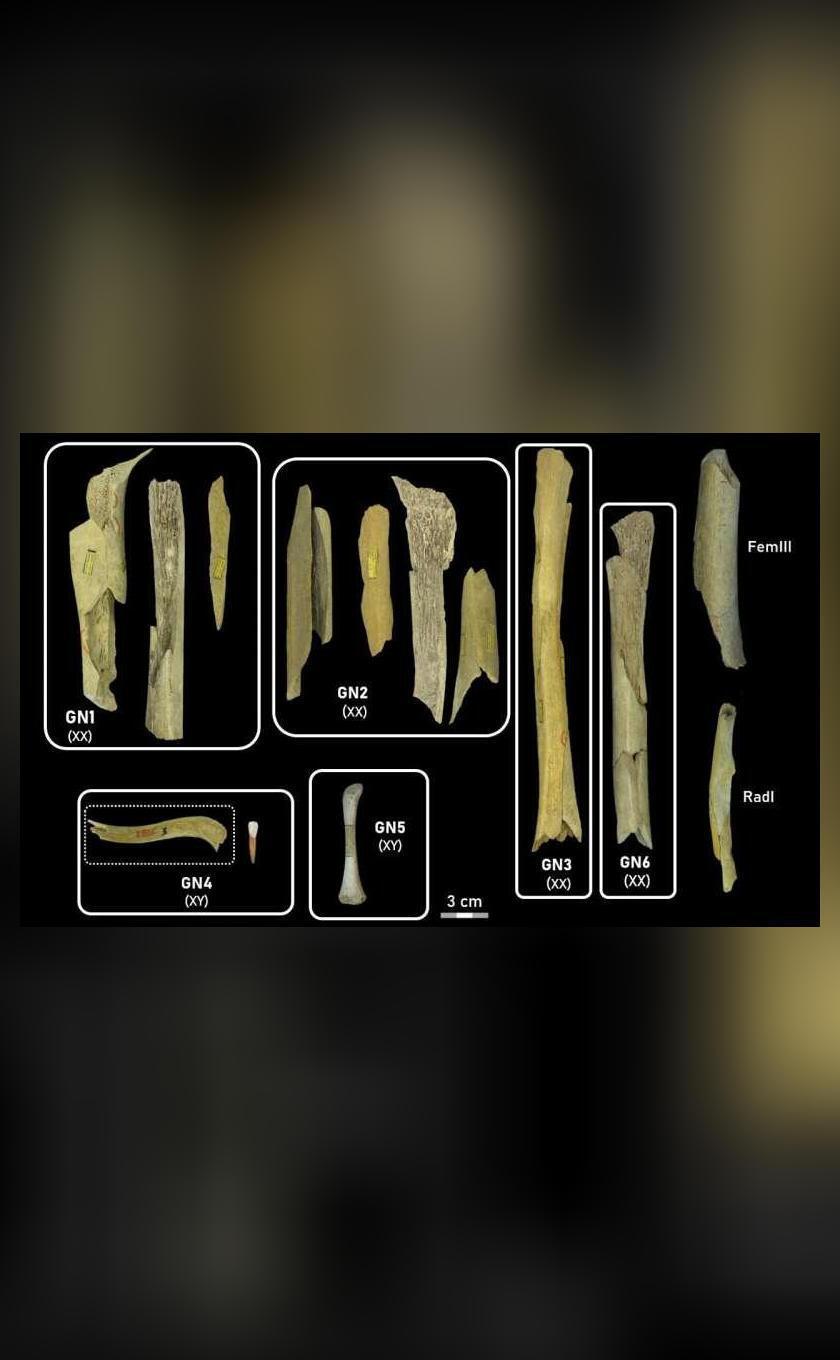
Neanderthals ate outsider women & children 45,000 years ago: Study
The discovery of human remains in Belgium’s Goyet cave system has shed new light on the behavior of Neanderthals, our ancient human relatives. A recent study has revealed that Neanderthals practiced cannibalism, targeting women and children from other communities, around 45,000 years ago. This finding has significant implications for our understanding of Neanderthal behavior, social structure, and the dynamics of human evolution.
The study, which analyzed 101 bone fragments found in the Goyet cave system, identified butchery marks similar to those found on animal bones. The presence of these marks suggests that the Neanderthals treated the human remains in a similar manner to animal carcasses, cutting and processing the flesh for consumption. The bone fragments, which included remains of women and children, showed evidence of deliberate dismemberment and defleshing, indicating that the Neanderthals had intentionally killed and eaten these individuals.
The researchers behind the study believe that the cannibalism practiced by the Neanderthals was linked to territorial conflict. During this period, Neanderthal populations were shrinking, and Homo sapiens had begun to occupy nearby regions. The competition for resources and territory may have led to increased aggression and violence between Neanderthal groups, resulting in the targeting of vulnerable individuals, such as women and children, from other communities.
The discovery of cannibalism among Neanderthals is not entirely new, as previous studies have suggested that they may have practiced this behavior. However, the current study provides the most compelling evidence to date, with the presence of butchery marks on human bones and the identification of remains from multiple individuals. The fact that the victims were predominantly women and children suggests that the Neanderthals may have been targeting specific groups or individuals, possibly as a means of asserting dominance or control over their territory.
The study’s findings also raise questions about the social structure and organization of Neanderthal groups. The presence of cannibalism suggests that Neanderthals may have had a more complex and nuanced social hierarchy than previously thought, with certain individuals or groups holding more power and influence than others. The targeting of women and children, in particular, may indicate that Neanderthals had a patriarchal social structure, with men holding dominant positions and women and children being more vulnerable to exploitation and violence.
The discovery of Neanderthal cannibalism also has implications for our understanding of human evolution and the development of modern human behavior. The fact that Neanderthals practiced cannibalism suggests that this behavior may have been more widespread among early human populations than previously thought. This, in turn, raises questions about the origins of modern human behavior, including our capacity for empathy, cooperation, and altruism.
The study’s findings also highlight the importance of interdisciplinary research in understanding human evolution and behavior. The analysis of human remains, combined with archaeological and anthropological data, has provided a unique insights into the lives and behaviors of our ancient ancestors. By combining multiple lines of evidence, researchers can reconstruct the social, cultural, and environmental contexts in which early human populations lived, providing a more nuanced and comprehensive understanding of human evolution.
In conclusion, the discovery of Neanderthal cannibalism in the Goyet cave system has significant implications for our understanding of Neanderthal behavior, social structure, and human evolution. The fact that Neanderthals targeted women and children from other communities suggests a complex and nuanced social hierarchy, with certain individuals or groups holding more power and influence than others. The study’s findings also raise questions about the origins of modern human behavior and the development of our capacity for empathy, cooperation, and altruism.
As we continue to explore and learn more about our ancient ancestors, we are reminded of the complexity and diversity of human behavior and the importance of interdisciplinary research in understanding our shared history. The discovery of Neanderthal cannibalism is a significant addition to our knowledge of human evolution, and it will undoubtedly continue to inspire new research and debate in the scientific community.
News Source: https://phys.org/news/2025-11-neanderthal-women-children-victims-cannibalism.html





